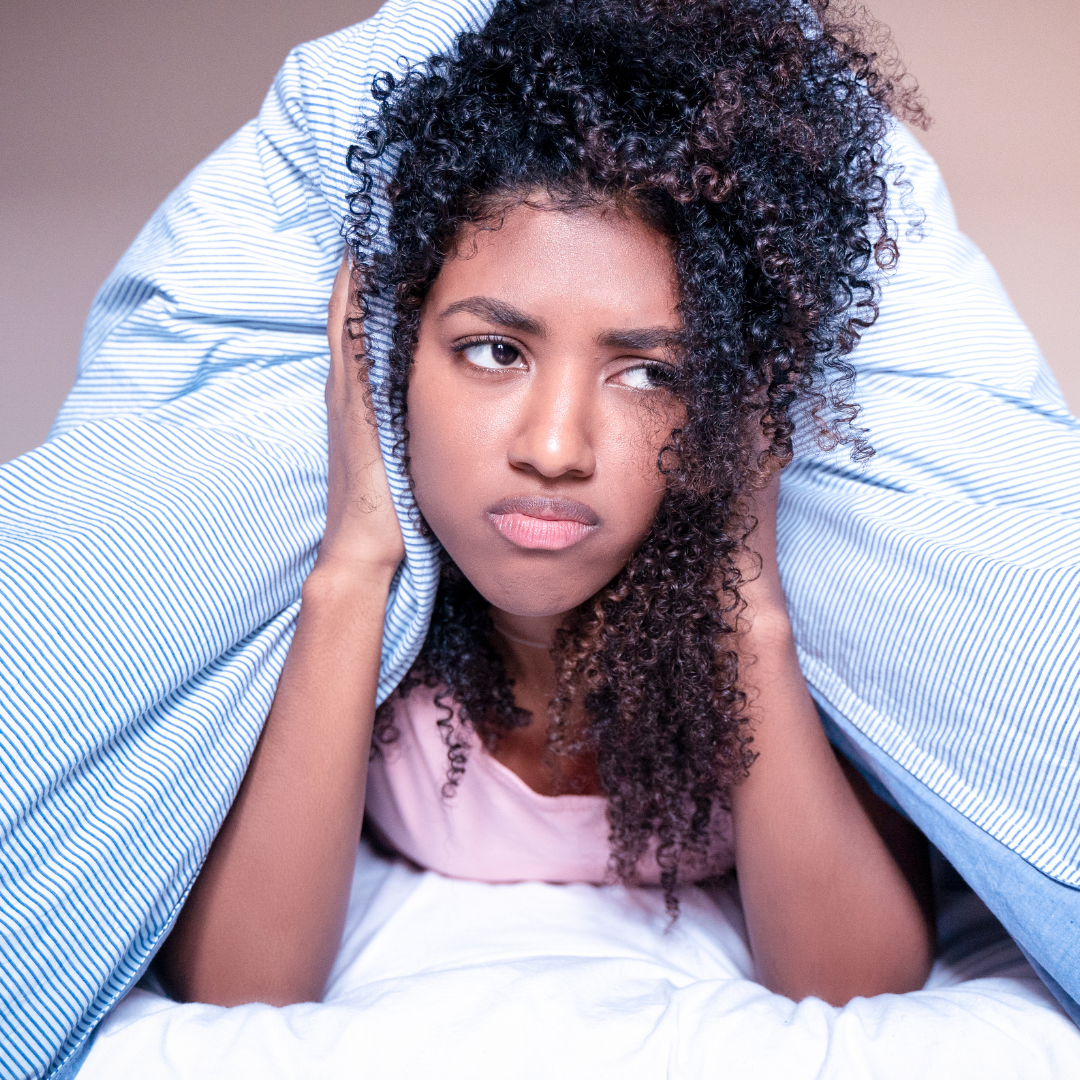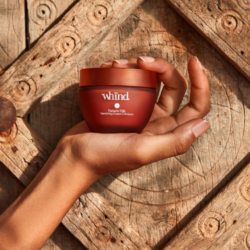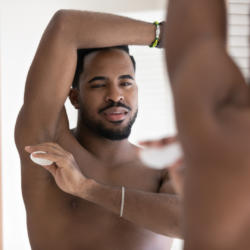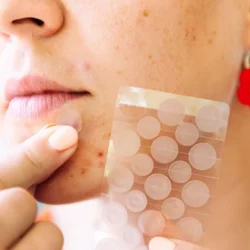We’ve all been there: tossing and turning, counting sheep until the cows come home, only to wake up looking like you wrestled a raccoon. But beyond the fatigue and foggy brain, sleep deprivation can wreak havoc on your precious skin and hair, leaving you dull, lackluster, and yearning for your radiance to return.
Fear not, beauty lovers! This article delves into the science-backed connection between sleep and your outer glow, revealing the silent beauty thief: insomnia. We’ll explore how sleep impacts your skin and hair in detail and equip you with research-driven strategies to reclaim your slumber and restore your radiant self.
Insomnia: Beyond Daytime Struggles
Insomnia, a sleep disorder characterized by difficulty falling asleep, staying asleep, or both, affects millions globally. While the immediate consequences like fatigue and irritability are well-known, its impact extends far beyond daytime struggles. Emerging research suggests a strong link between sleep deprivation and compromised skin and hair health, highlighting the importance of prioritizing quality sleep for overall well-being.
The Science Behind the Beauty Sleep Symphony
Think of sleep as your body’s ultimate beauty rejuvenation treatment. During those precious hours, a symphony of cellular repair and regeneration takes place. Your body enters a state of rest and repair, which is crucial for various physiological processes. This includes the synthesis of collagen and elastin, essential proteins that provide skin with its structure and elasticity, and regulating hormone levels, including cortisol, the stress hormone. When sleep is disrupted, cortisol production increases, leading to inflammation and the breakdown of collagen and elastin, ultimately accelerating the signs of aging.
The Impact of Insomnia on Skin
- Premature Aging: During sleep, your skin ramps up the production of collagen and elastin, proteins responsible for maintaining its plumpness, elasticity, and youthful appearance. Chronic sleep deprivation manifests visibly on the skin, making it appear dull, tired, and prone to wrinkles and fine lines. The lack of collagen and elastin production and increased inflammation contribute to the loss of skin firmness and elasticity, leading to premature aging. Studies have shown that even a single night of poor sleep can significantly decrease collagen production and accelerate skin aging.
- Worsened Skin Conditions: Sleep helps regulate cortisol, the stress hormone. When cortisol levels spike due to sleep deprivation, it triggers inflammation, a major contributor to acne breakouts, eczema flare-ups, and overall skin sensitivity. Research suggests that chronic stress and elevated cortisol levels can exacerbate existing skin conditions.
- Dehydration: Sleep deprivation can also disrupt the skin’s natural hydration balance. During sleep, the body releases vasopressin, a hormone that regulates water retention. When sleep is inadequate, vasopressin levels decrease, leading to increased water loss through the skin, resulting in dryness and dehydration.
- Altered Skin Renewal: During sleep, your skin sheds old cells and replaces them with fresh ones, renewing itself. Lack of sleep disrupts this renewal process, leaving your skin dull, dehydrated, and lacking its natural glow. Studies have shown that sleep deprivation can impair the skin’s barrier function, making it more susceptible to environmental damage and dehydration.
The Hair-Raising Effects of Sleepless Nights
Our hair doesn’t escape the wrath of insomnia either. Sleep cycles regulate hair follicle activity. When sleep is disrupted, hair follicles can enter a prolonged resting phase, leading to increased shedding, thinning hair, and even hair loss. Additionally, sleep deprivation can exacerbate scalp conditions like dandruff, itchiness, and inflammation.
The Impact of Insomnia on Hair
- Hair Loss and Thinning: Hair follicles go through a specific growth cycle, including phases of growth, regression, and resting. Sleep deprivation can disrupt this cycle, prolonging the resting phase and hindering hair growth. This can lead to increased shedding, thinning hair, and even hair loss. Research suggests that sleep deprivation can disrupt the hair growth cycle, leading to shorter hair growth phases and increased hair loss.
- Dry and Brittle Hair: Lack of sleep can also affect the scalp’s health, leading to dryness and inflammation. This disrupts the natural production of sebum, an oily substance that lubricates the scalp and hair, resulting in dry, brittle strands prone to breakage.
- Scalp Issues: Insomnia can exacerbate scalp conditions like dandruff, itchiness, and inflammation. The disrupted sleep-wake cycle and increased stress levels can contribute to these issues, causing discomfort and affecting hair health. Studies have shown a link between sleep disturbances and increased scalp inflammation, which can worsen existing scalp conditions.
Beyond Beauty Sleep: A Holistic Approach to Radiant Skin and Hair
While prioritizing sleep is crucial, achieving true beauty requires a holistic approach that combats the beauty-depriving effects of insomnia. Here are some research-backed strategies to help you reclaim your slumber and restore your radiant self:
- Establish a Consistent Sleep Schedule: Train your body to expect sleep at specific times by going to bed and waking up at the same time each day, even on weekends. Consistency is key to regulating your natural sleep-wake cycle.
- Embrace Sleep-Friendly Skincare: Pamper yourself with a relaxing bedtime routine that incorporates soothing ingredients like chamomile and lavender. Look for skincare products formulated with hyaluronic acid to boost skin hydration, which can be compromised by sleep deprivation.
- Craft a Calming Bedtime Ritual: Signal to your body that it’s time to wind down with a relaxing bedtime routine. Take a warm bath, lose yourself in a good book, or practice mindfulness meditation. Avoid stimulating activities like watching TV or using electronic devices before bed, as the blue light emitted from these screens can disrupt your sleep.
- Optimize Your Sleep Sanctuary: Transform your bedroom into a sleep haven. Ensure it’s dark, quiet, and cool by investing in blackout curtains, earplugs, and a comfortable mattress. Remember, creating a sleep-conducive environment is essential for optimal sleep conditions.
- Limit Stimulants: Avoid caffeine, alcohol, and screen time, especially in the hours leading up to bedtime, as they can disrupt your sleep patterns. Additionally, limit nicotine intake, as it can also interfere with sleep quality.
- Embrace a Healthy Lifestyle: Regular exercise promotes better sleep by regulating your body’s natural sleep-wake cycle and reducing stress levels. Aim for at least 30 minutes of moderate-intensity exercise most days of the week.
- Nourish from Within: Prioritize a balanced diet rich in fruits, vegetables, and omega-3 fatty acids. These essential nutrients provide the building blocks for healthy skin and hair from within. Include leafy greens, berries, nuts, and fatty fish in your diet for optimal nourishment.
- Stay Hydrated: Drinking sufficient water throughout the day is crucial for maintaining skin and hair hydration. Aim for eight glasses of water daily to keep your skin and scalp healthy and radiant.
- Seek Professional Help: If you continue to struggle with insomnia despite implementing these strategies, don’t hesitate to seek professional help. A healthcare professional can help identify the underlying causes of your sleep problems and develop a personalized treatment plan, which may include cognitive behavioral therapy for insomnia (CBT-I) or medication.
Remember, prioritizing quality sleep is an investment in your overall well-being and beauty. Aim for 7-9 hours of sleep each night to allow your body to repair and regenerate. By incorporating these holistic strategies and embracing a consistent sleep routine, you can reclaim your slumber, restore your radiant glow, and wake up feeling refreshed and revitalized, ready to conquer each day with confidence and inner beauty. So, the next time you’re tempted to sacrifice sleep for late-night scrolling, remember, that sweet dreams and beautiful mornings await!






